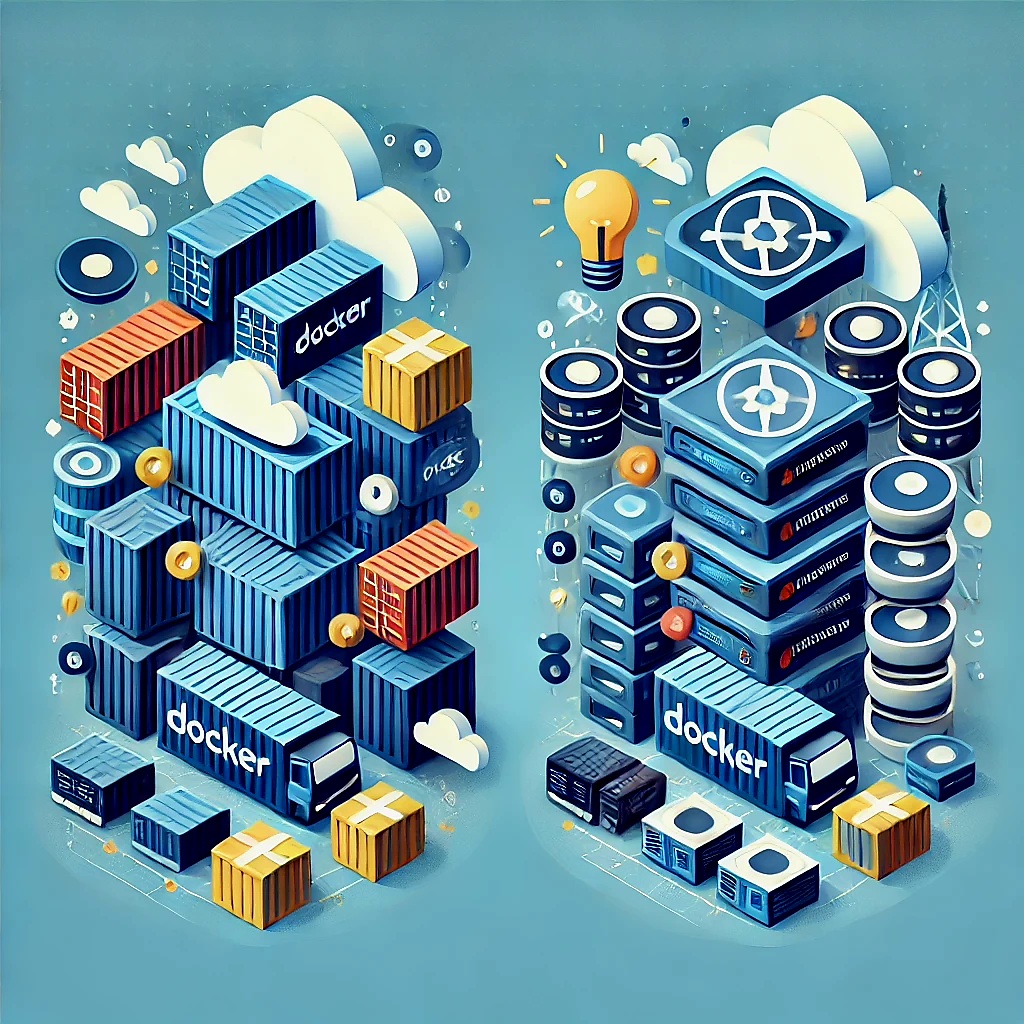Docker vs Kubernetes: What’s the Difference and Which One to Use?
In today’s fast-paced world of software development, containerization has become a cornerstone of modern workflows. Docker and Kubernetes are two of the most popular tools that play a crucial role in this ecosystem. But what are they, how do they differ, and when should you use them? Let’s dive in.
What is Docker?
Docker is a platform that simplifies the process of building, deploying, and running applications in containers. Containers encapsulate an application and its dependencies, ensuring consistency across development, testing, and production environments.
Key Benefits of Docker:
- Portability: Ensures applications run identically across different systems.
- Efficiency: Containers share the host OS kernel, consuming fewer resources than virtual machines.
- Ease of Use: Developers can quickly create and manage containers using Docker CLI and Docker Compose.
- Integration: Works seamlessly with CI/CD pipelines and various cloud platforms.
What is Kubernetes?
Kubernetes, often abbreviated as K8s, is a container orchestration platform. It automates the deployment, scaling, and management of containerized applications across a cluster of machines.
Key Benefits of Kubernetes:
- Scalability: Automatically adjusts the number of containers based on workload demands.
- High Availability: Ensures that your application remains up and running, even in the face of failures.
- Self-Healing: Replaces crashed containers and restarts failed ones.
- Declarative Management: Uses configuration files (YAML/JSON) to define desired states.
Docker vs Kubernetes: A Head-to-Head Comparison
| Feature | Docker | Kubernetes |
|---|---|---|
| Purpose | Build, ship, and run containers | Manage and orchestrate containers |
| Complexity | Simple and beginner-friendly | Advanced, requires expertise |
| Scalability | Basic with Docker Swarm or Compose | Robust, with built-in autoscaling |
| Networking | Simplified container networking | Advanced, multi-node networking |
| Deployment | Best for small to medium applications | Ideal for large, distributed systems |
| Self-Healing | Limited support | Automatic container recovery |
Do Docker and Kubernetes Work Together?
Absolutely! Docker and Kubernetes complement each other rather than compete. Here’s how:
- Docker Builds Containers: Developers use Docker to create lightweight, portable container images.
- Kubernetes Manages Containers: Kubernetes orchestrates these containers, handling tasks like deployment, scaling, and networking.
When to Use Docker or Kubernetes?
- Choose Docker if:
- You’re starting small and need a quick way to containerize apps.
- Simplicity and ease of use are your priorities.
- You’re developing a monolithic application.
- Choose Kubernetes if:
- You’re building a microservices architecture.
- High availability and scalability are essential.
- Your application needs robust automation and orchestration.
Conclusion
Docker and Kubernetes are indispensable tools for modern application development. Docker focuses on creating and running containers, while Kubernetes handles orchestration at scale. Together, they provide a complete solution for managing containerized applications in development and production environments.
For beginners, Docker is an excellent starting point to understand containerization. As your projects grow, Kubernetes can help you tackle the complexities of scaling and managing applications efficiently.
